Rolando Villazon singt jetzt ohne Anna Netrebko
Der Mexikaner Rolando Villazon ist gemeinsam mit der Russin Anna Netrebko zum Weltstar geworden. Sie galten als das Traumpaar der Oper. Dann erfasste Villazon eine Stimmkrise. Jetzt meldet er sich solo zurück: Mit neuer CD und bald auch live in Berlin. Morgenpost Online sprach mit dem Star-Tenor.Morgenpost Online: Es ist schon überraschend, dass Sie jetzt mit Händel auftreten. Werden wir künftig einen anderen Rolando Villazon erleben?
Rolando Villazon: Oh, es gibt immer einen neuen Rolando. Ich möchte einfach nur das machen, was meiner Stimme und meiner Seele gut tut. Und was ich mit meiner Stimme erfüllen kann.
Morgenpost Online: Warum tut Ihnen Händel gut?
Villazon: Angefangen hat das Ganze, als ich im Jahr 2000 Cecilia Bartoli mit Vivaldi hörte. Das war eine der schönsten Aufnahmen, die ich bis dahin gehört habe. Dann habe ich Monteverdi gesungen, was für mich eine unglaubliche Erfahrung war. Das war etwas Mystisches, etwas Spirituelles. Also wollte ich unbedingt Vivaldi und Händel aufnehmen. Ich dachte, bei Vivaldi kann ich diesen starken starken Rhythmus und die Energie aufnehmen, bei Händel wollte ich obendrein diese seelische Tiefe finden.
Morgenpost Online: Warum tut es der Stimme gut?
Villazon: Oh, es geht nicht nur um die Stimme, sondern um den Künstler. Bei dieser Barockmusik muss die Seele die Stimme führen und nicht wie in späteren Zeiten die Technik. Stellen Sie sich Musik wie eine Welle vor. Dann ist der Tenor im romantischen Repertoire ein Surfer, es ist gefährlich, man braucht Talent und viel Übung, um die Welle zu beherrschen. Aber in der Barockmusik gibt es keine Surfer, sondern nur die Welle, und der Sänger ist ein Teil von ihr.
Morgenpost Online: Sie sind ein sehr leidenschaftlicher Tenor, bedeutet Händel letztlich nicht eine Einengung?
Villazon: Nein, nein, nein. Händel ist viel zu groß. Das Wichtigste ist, ich möchte seiner Musik dienen und sie nicht benutzen, nur um etwas neu zu machen. Ich lasse in die Arien zwar viel von mir einfließen, aber es muss eine homogene Mischung sein. Es ist wie ein Glas Rotwein. Nach dem Eingießen gibt es nur eine Farbe, und das ist meine. Im Übrigen habe ich viel gelernt bei Händel.
Morgenpost Online: Zum Beispiel?
Villazon: Koloraturen. Ich musste alle meine Technik zusammen nehmen, um Koloraturen singen zu können. Und ich habe neue Farben für mich gefunden. Überhaupt habe ich den Alten Stil für mich entdeckt. Es ist eine Tradition des absoluten Zusammenseins aller Bestandteile, kein Teilnehmer darf aus der Musik mit irgendeiner Stimmung ausbrechen, auch kein Tenor. Im Verdi kann man dagegen fast machen was man will.
Morgenpost Online: Händel hat weniger die Tenöre, sondern mehr die Kastraten verwöhnt.
Villazon: Ich glaube übrigens auch nicht, was viele denken, dass der Tenor die wichtigste Stimme ist. Denken wir nur an Simone Boccanegra, Rigoletto, Edgar… Wir sprechen gern über Soprane und Tenöre, weil sie es so einen unglaublich und unmöglich hohen Klang erzeugen können. Aber Händel hat weniger für Tenöre geschrieben. Unbedingt wollte ich „Ombra mai fu“ singen, das ist eine alte Tenortradition. Diese Melodie hat mein Herz schon als Student höher schlagen lassen. Daneben gibt es einige Bearbeitungen.
Morgenpost Online: Wenn man Ihre CDs bei Grammophon anschaut, dann haben Sie mit einer Solo-Aufnahme begonnen, dann gab es mehrfach Duette mit Anna Netrebko, jetzt singen Sie wieder allein?
Villazon: Oper ist Teamwork, es ist immer schön, mit jemandem zusammen zu singen. Aber nach Händel folgt erst noch mal ein Soloprojekt mit einem Komponisten.
Morgenpost Online: Welchem?
Villazon: Sag ich noch nicht.
Morgenpost Online: Als Künstler haben Sie eine schwere Zeit hinter sich. Die Absagen von Vorstellungen, zuletzt mit
Anna Netrebko in New York, haben sich gehäuft. Was für ein Problem haben Sie eigentlich. Ist es die Stimme, die Seele oder nur das Wetter, weil ein mexikanischer Tenor nicht in Europa leben sollte?
Villazon: Am Wetter liegt es nicht. Ich bin auch nicht der einzige Sänger, dem das passiert. Aber bei mir wird sofort darüber geschrieben, alles geht ins Youtoube. Die Leute machen in ihren Bloggs ihre Geschichten daraus. Aber es stimmt, dass ich mir im letzten Jahr sechs Monate Auszeit genommen habe. Aber nach sechs, sieben Jahren einer schönen Karriere muss man sich eine solche Auszeit nehmen können. Es ist doch kein Geheimnis, dass sich ein Tenor mit 36, 37 zu verändern beginnt. Nicht nur stimmlich, sondern auch als Mensch. Ich habe gelegentlich Sodbrennen. Manchmal passiert das eben in einer Vorstellung. Hinzu kam in New York eine Erkältung .So ist das Leben. Und bin stolz auf meine zwei gelungen Vorstellungen an der Met und die vier Werther Vorstellungen in Paris.
Morgenpost Online: Vladimir Malakhov hat einmal öffentlich bekannt, dass Tänzer jenseits der künstlerischen Schönheit täglich mit körperlichen Schmerzen leben. Wie ist es bei Tenören?
Villazon: Es sind keine Schmerzen, weil nichts weh tut. Bei uns dreht sich alles um das Sicherheitsbedürfnis. Wir haben immerzu im Kopf, dass es bloß nicht zu warm, nicht zu kalt, nicht zu feucht, nicht zu trocken ist. Wir brauchen den inneren Glauben, dass wir den hohen Ton erreichen. Dass ist keine Frage der Stimme, sondern des Kopfes. Ein Tänzer kann seinen Fuß sehen und Schmerzen fühlen. Wir Sänger tragen unser Instrument in uns. Der Sänger selbst ist das Instrument. Man muss psychologisch gesund sein. Nein, stopp, vielleicht ist es am besten verrückt sein zu, um einfach auf die Bühne rauszugehen, und zu denken, jetzt mache ich es.
Morgenpost Online: Machen Sie – seit der Auszeit - Yoga oder Meditation?
Villazon: Ich denke seit Jahren über meine Karriere nach.
Morgenpost Online: Es klingt, als ob Sie jetzt an einem Punkt sind, an dem Sie Ihr Leben überdenken?
Villazon: Ja, denn meine Jugendzeit als Künstler ist vorbei. Es waren gute zehn Jahre, aber jetzt bin ich erwachsen und fühle, dass sich vieles verändert hat.
Morgenpost Online: Ihre Karriere ist maßgeblich an die Berliner Staatsoper gebunden. Was hat ein Dirigent wie Daniel Barenboim, dass Sie sich ihm so anvertrauen?
Villazon: Er ist einer der größten Künstler unserer, wohl aller Zeiten. Ich habe ihm am Anfang meiner Karriere im Jahr 2000 vorgesungen. Er war begeistert. Und wenn jemand wie er an mich glaubt, dann gibt das einem selbst sehr viel Kraft und Glaube. Das Singen war plötzlich nicht nur mein Traum, sondern es war Realität geworden. Er ist mir ein großer Freund geworden. Mein Mentor, wie auch Placido Domingo. Ich habe viel von Daniel Barenboim gelernt, er ist ein Musikphilosoph. Er denkt über die Welt nach, engagiert sich für Lösungen im Nahost-Konflikt. Er versteht Musik nicht nur als schöne Dekoration in unserem Alltag, sondern als einen Teil unseres Lebens. Und die Berliner Staatsoper ist mein Haus, meine Heimat. Im Haus kennen mich viele noch als den jungen Rolando und sehen in mir nicht irgendeinen Startenor. Man freut sich, wenn ich komme und ich kann sein wie ich bin - eben Rolando.
Morgenpost Online: Der Musikmarkt hat seine eigenen Regeln, Dirigenten planen fünf und mehr Jahre im Voraus. Wissen Sie schon, was Sie in fünf Jahren machen werden?
Villazon: Ja, aber ich versuche, nicht daran zu denken. Diese Vorausplanung ist absoluter Unsinn. Sänger verändern sich in dieser Zeit viel zu sehr. Dann kommt man zu einer Produktion und denkt, mammamia, das will ich doch eigentlich gar nicht mehr singen. Mehr als ein, zwei Jahre sollte man nicht vorausplanen. Leider ist es schwierig, es anders zu machen. Aber ich versuche es. Für die Oper ist es generell ein Problem.
Morgenpost Online: Warum sind Sie eigentlich nach Paris und nicht nach Berlin gezogen?
Villazon: Wir haben es uns tatsächlich schwer getan mit dieser Entscheidung. Aber für meine Familie war es leichter, Französisch zu lernen, weil es dem Spanischen näher ist. Und außerdem ist das Wetter in Paris besser.
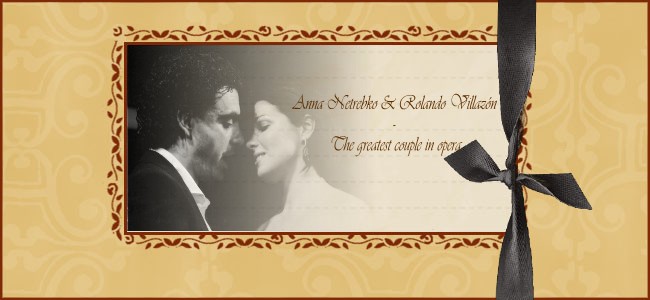







.jpg)



.jpg)


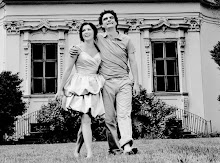
.jpg)

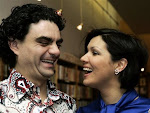

.jpg)

.jpg)


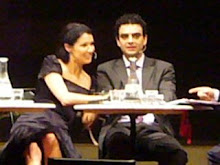.jpg)


.png)
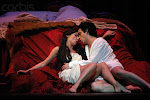


.jpg)
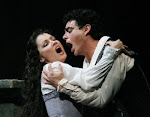.jpg)
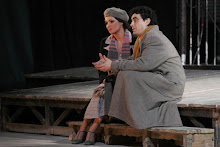.jpg)
.jpg)
.jpg)
.jpg)
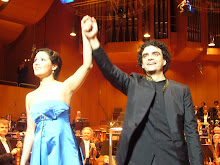.jpg)


.jpg)


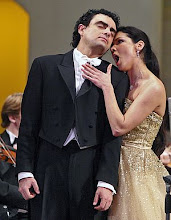.jpg)
.jpg)


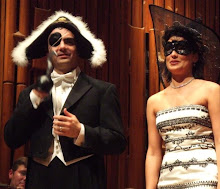


.jpg)
.jpg)

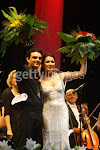
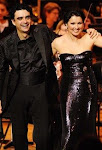.bmp)
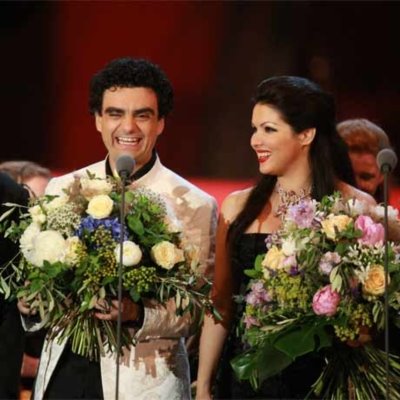
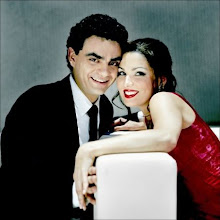
.jpg)

.jpg)




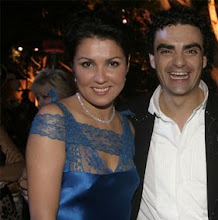+2.jpg)
.jpg)





















